Iran Votes In Elections Dominated By Conservative Candidates
Iranians were voting Friday for a new parliament which conservatives are expected to dominate, with turnout seen as a key measure of support for Iran's leadership as sanctions weigh on the economy and isolate the country diplomatically.
An Iranian woman casts her ballot during parliamentary election at a polling station in Tehran on February 21, 2020. Photo: © ATTA KENARE / AFP
Iranians were voting Friday for a new parliament which conservatives are expected to dominate, with turnout seen as a key measure of support for Iran's leadership as sanctions weigh on the economy and isolate the country diplomatically.
The disqualification of some 9,000 potential candidates, most of them reformists and moderates, by Iran's powerful Guardian Council raised the possibility of lower-than-usual turnout.
Reporting from the capital, Tehran, FRANCE 24’s Reza Sayah said the Guardian Council this year had barred around 90 sitting moderate or reformist lawmakers, leading many Iranians to question whether the Friday’s vote was a legitimate democratic exercise.
“Analysts say this apparent purge of reformists is an indication that Iran’s establishment is reshaping the government from one that was led by the moderates and reformists who wanted to open relations with the West, who wanted the [2015] nuclear deal, to one that now will be dominated by conservatives and hardliners who are going to take a much more firm stance against the US, implementing more anti-US policies, which doesn’t bode well for what’s left of the nuclear deal and improved relations with the West,” noted Sayah.
Iranians have seen the price of basic goods skyrocket, inflation and unemployment rise and the local currency plummet since US President Donald Trump withdrew from the 2015 Iran nuclear agreement and imposed tough sanctions.
Wary of the growing frustration on the streets, Supreme Leader Ayatollah Ali Khamenei has been urging Iranians to vote.
Speaking to reporters shortly after he cast his ballot in Tehran Friday, Khamenei noted that, “Anyone who cares about Iran's national interests should participate in the election."
Around 7,000 candidates are running in 208 constituencies for the 290-seat chamber.
Washington slaps new sanctions
Tensions with the US hit an all-time high this year following a US airstrike which killed Iran’s top general, Qassem Soleimani. The strike led to a confrontation in which Iranian forces accidentally shot down a Ukrainian passenger plane after it took off from Tehran, killing all 176 people on board. Most of those killed were Iranian.
The shoot-down, and attempts by officials to initially conceal the cause of the crash sparked public anger and protests in Iran, which were violently put down by the administration.
On Thursday, Washington slapped sanctions on five Iranian officials in charge of vetting candidates, including Ahmad Jannati, a powerful cleric.
"The Trump administration will not tolerate the manipulation of elections to favour the regime's malign agenda," said US Treasury Secretary Steven Mnuchin.
The Guardian Council slammed the sanctions, saying they showed US disdain for democracy.
"America's regime has shown through illegal sanctions... on members of the Guardian Council that it has nothing to do with democracy," said its spokesman Abbas Ali Kadkhodaee, who was among those hit with sanctions.
"We are now even more determined to safeguard the people's vote," he tweeted.
'People are not hopeful'
Turnout in Friday's elections is widely viewed as a critical test of the legitimacy of Iran's democratic process with the state unleashing all stops to encourage Iranians to vote.
On the eve of the elections, state media aired a short clip showing votes transforming into torpedoes hitting enemy navy ships closing in on Iran.
Hessameddin Ashena, a senior adviser to President Hassan Rouhani, warned on Twitter that abstention "increases (among other things) the possibility of a military aggression".
Turnout in Iran's past 10 elections averaged 60.5 percent, according to the interior ministry.
The Guardian Council said it expected at least 50 percent of registered voters to cast ballots.
Many voters, however, have voiced disinterest.
"We voted for Mr Rouhani with a dream, and then we didn't achieve anything. So, in my opinion, people are not hopeful any more," said Mohammed, who spoke from his carpet shop and only gave one name.
'Only a formality'
"I honestly don't want to vote, because it won't fix our problems and is of no use, and this election is only a formality just so they can show to the world that they are chosen by the nation, while it is not so," said Pari Aghazadeh, a fashion designer.
In November, demonstrations over petrol price hikes spread across Iran and turned violent before being crushed in a deadly crackdown.
Tehran and Washington have nearly gone to war twice in the past seven months, most recently after the US assassinated prominent Iranian general Qasem Soleimani on January 3.
The "martyrdom" of the hugely popular general provoked an outpouring of grief in Iran.
Millions of people turned out to mourn his death, but that unity suffered a blow after Iran finally admitted that it had shot down a Ukrainian airliner on January 8, killing 176 people.
The government sparked further anger by denying for several days that Iran was to blame, before owning up to a jittery reaction by a missile operator.
The disaster unfolded as Iran's defences were on high alert in case the US retaliated to Iranian strikes hours earlier on American troops stationed in Iraq in response to the killing of Soleimani.
Voting for the parliament, or Majles, lasts 10 hours but can be extended. Final results are not expected before Sunday.
Apart from the parliament, voters will also choose replacements for deceased members of the Assembly of Experts, a 88-strong clerical body that appoints and monitors the supreme leader.
-

Moldovan youth is more than ready to join the EU
2024-04-18 -
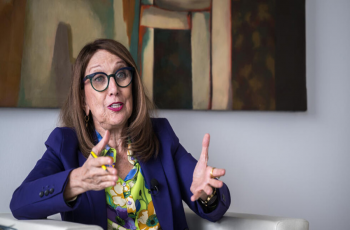
UN says solutions exist to rapidly ease debt burden of poor nations
2024-04-18 -
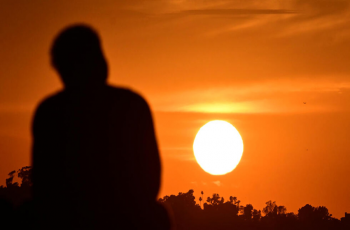
'Human-induced' climate change behind deadly Sahel heatwave: study
2024-04-18 -
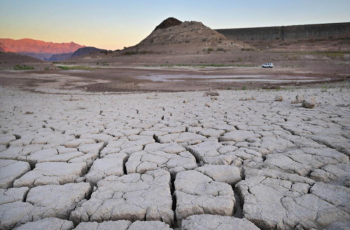
Climate impacts set to cut 2050 global GDP by nearly a fifth
2024-04-18 -
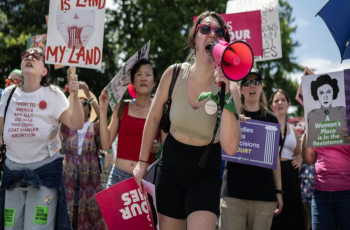
US sterilizations spiked after national right to abortion overturned: study
2024-04-13 -
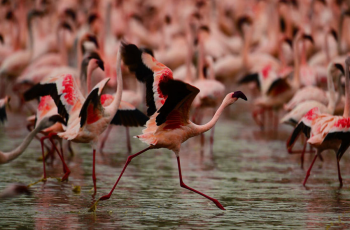
Future of Africa's flamingos threatened by rising lakes: study
2024-04-13 -
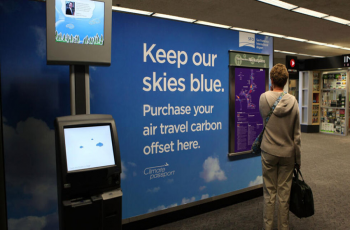
Corporate climate pledge weakened by carbon offsets move
2024-04-11 -
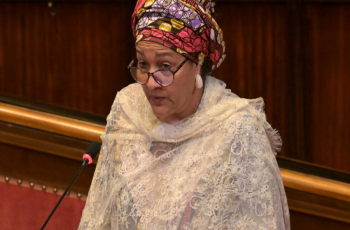
Humanity lost 'moral compass' on Gaza: top UN official
2024-04-10 -

No.1 Scheffler says patience and trust are secrets to success
2024-04-10 -
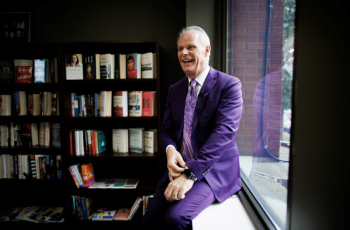
From homeless addict to city chief: the unusual journey of Canadian mayor
2024-04-10
